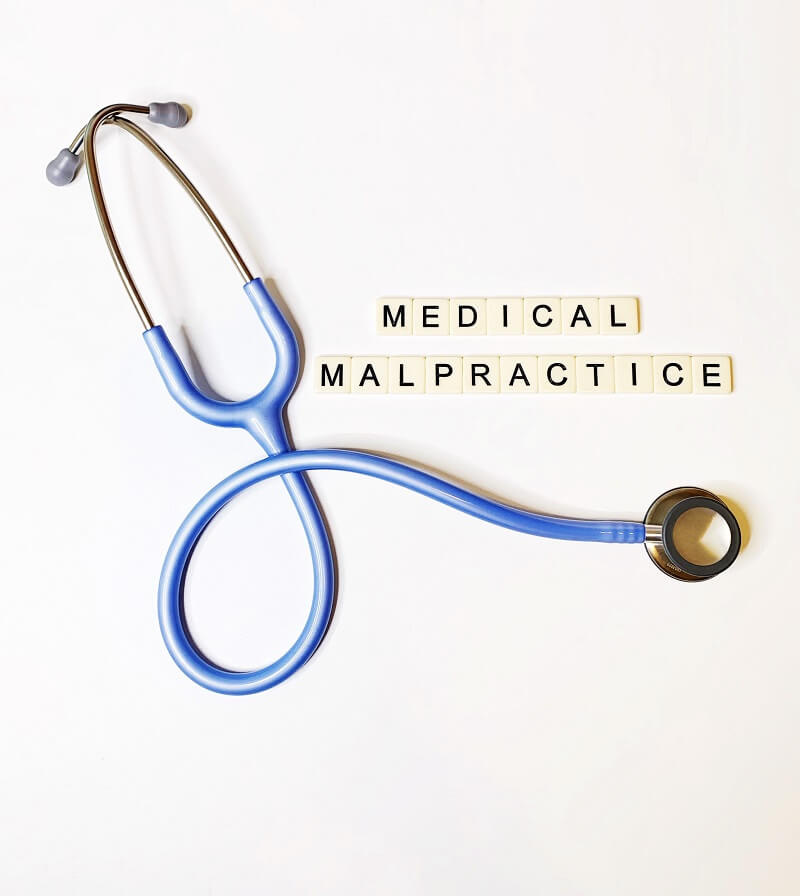If you or a loved one has been the victim of medical malpractice, you may wonder if the doctor or other medical professional responsible can be charged with a crime. The answer to this question is not always clear-cut.
While there are some instances in which medical malpractice may cross the line into criminal behavior, it is important to understand that not all cases of medical malpractice will be considered criminal. In this article, we will discuss everything you need to know about medical malpractice, as well as when it may become a criminal case.
What Is Medical Malpractice?
Medical malpractice is any action or inaction by a medical professional that deviates from the accepted standard of care and results in harm to the patient. There are many different types of medical malpractice, but some of the most common include:
- Misdiagnosis or delayed diagnosis: When a doctor fails to correctly diagnose a medical condition, it can result in the patient not getting the treatment they need in a timely manner. This can often lead to serious health complications or even death.
- Birth injuries: When a medical professional fails to properly care for a mother and child during labor and delivery, it can result in serious injuries to the child.
- Surgical errors: Surgery is always risky, but when a doctor makes an error during surgery, it can have devastating consequences for the patient.
- Anesthesia errors: Anesthesia is necessary for many types of surgery, but if it is not administered properly, it can lead to serious health complications or even death.
- Medication errors: Patients who suffer adverse reactions to medication or who are given the wrong medication due to a doctor’s error can suffer serious health consequences.
- Wrongful death: An estimated 225,000 people die as a result of medical malpractice per year, making it the third most common cause of death in the United States.
For example, if a doctor accidentally leaves a surgical instrument inside a patient’s body, this would be considered a surgical error. If a doctor prescribes the wrong medication to a patient, this would be considered a medication error.
In some cases, medical malpractice can have severe consequences. For instance, cases involving emergency room medical malpractice may include life-threatening situations where misdiagnosis or medication errors lead to catastrophic outcomes. In the event of an anesthesia error, for example, the patient may suffer brain damage or even death due to over- or under-medication. While these are just a few examples, any type of deviation from the standard of care that harms the patient can be considered medical malpractice.

When Can You Sue for Medical Malpractice?
If you are a medical malpractice victim, you may wonder when to pursue the help of a lawyer for your injuries. To win a medical malpractice case, the plaintiff must show that the defendant deviated from accepted standards of care and that this behavior was a direct cause of the plaintiff’s injuries.
Standards of care can be difficult to define, as they vary depending on the specific circumstances of each case. In general, medical professionals are expected to provide care that is consistent with what other reasonable professionals would do in a similar situation. If a medical professional fails to meet this standard and their patient is injured, they may be liable for medical malpractice.
Medical malpractice lawsuits are complex and can be very expensive to litigate. It is important to consult with an experienced attorney like those at the Tinker Law Firm PLLC before taking any legal action.
When Does Medical Malpractice Become a Criminal Case?
In general, medical malpractice is considered a civil matter, not a criminal one. This means that the victim can sue the doctor or other medical professional responsible for the malpractice in civil court, but they cannot be charged with a crime.
However, there are some exceptions. If the medical professional’s actions were so egregious that they rose to the level of criminal negligence, they could be charged with a crime. Criminal negligence is a type of recklessness that involves such a disregard for human life that it rises to the level of a crime. For example, if a doctor is aware that their patient is allergic to a certain medication but prescribes it anyway, this could be considered criminal negligence.
In some cases, medical professionals may also be charged with assault or battery if they physically harm their patients. For example, if a surgeon deliberately harms a patient’s body during surgery, they could be charged with assault.
In order for this to be considered a crime, however, the medical professional must have had the intent to harm the patient. If they did not, it would likely be considered a civil matter.

How Can Victims Prove That Criminal Medical Malpractice Took Place?
There are many ways to prove that medical malpractice has taken place. Some of the most common include:
- Reviewing the medical records
- Interviewing witnesses
- Consulting with expert witnesses
If the victim exhibits apparent physical, emotional, or psychological injuries, this can also be used as evidence. For example, if a patient is left with permanent brain damage after an anesthesia error, this would be considered strong evidence of medical malpractice.
To prove that the malpractice was a result of deliberate criminal actions, the victim would need to show that the medical professional had a duty to care for them and that they breached this duty by acting recklessly. This can be difficult to do, especially if the medical professional does not have a history of criminal activity.
It’s important to note that even if the victim is able to prove that criminal medical malpractice took place, the prosecution still has to decide whether or not to pursue charges. This decision is often based on factors such as:
- The severity of the injuries
- The amount of evidence
- The jurisdiction in which the case will be tried
- Whether or not the prosecution believes that they can get a conviction.
How to Cope As a Medical Malpractice Victim
Dealing with the aftermath of medical malpractice can be physically and emotionally difficult. If you need to pursue legal action, it may be a while before you see any resolution, but there are some things you can do to cope with the situation:
- Talk to a therapist or counselor
- Make sure to keep up with your regular medical appointments
- Maintain physical activity if you can
- Eat a healthy and well-balanced diet
Endnote
Being a victim of medical malpractice is challenging and stressful, but it’s essential to remember that there is a light at the end of the tunnel. If you or someone you know has been the victim of medical error, you should contact an attorney as soon as possible. An experienced attorney can help you understand your rights and options, and they can also investigate the matter to determine if you have a case.









![University of Idaho Murders: The Bryan Kohberger Investigation [Part 1] Idaho murders, university student victims](https://www.crimetraveller.org/wp-content/uploads/2025/03/Idaho-University-Murders-150x150.jpg)
This article provides a helpful overview of medical malpractice, but as a lawyer, I’d add that the distinction between civil and criminal cases hinges on intent and the degree of negligence. While most medical malpractice cases involve unintentional errors, criminal charges might be pursued if a medical professional’s actions were intentionally harmful or displayed a reckless disregard for patient safety, going beyond mere negligence.
Hi Jimenez, that’s really useful information, thanks for your comment!